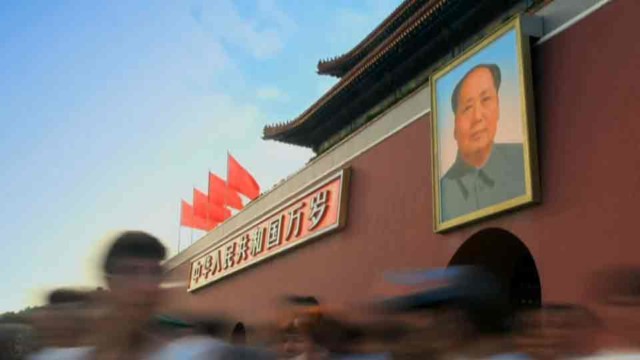Since the 18th National Party Congress, China has witnessed a renewed and intensified anti-corruption campaign that is bringing change to more than just the public service system.
CGTN’s Xu Zhaoqun reports on the crackdown and public reaction.
Surprising as it may sound, restaurants have been hit particularly hard by the corruption crackdown. One of the Eight Provisions put forward by the party’s Politburo in December 2012 stipulates NO BUSINESS MEALS for officials and party cadres.
For Lu Wentao, owner of Lobster House restaurant, the changes have been easy to see.
“The business environment has changed a lot after the government’s restriction. A lot of people don’t want to go out, especially to the high-end restaurants.”
Lavish meals at the taxpayer’s expense used to be a serious problem in China, and drew considerable criticism from the general public. But since the introduction of the Eight Provisions, the situation has changed dramatically.
Luxury restaurants are finding themselves with fewer high-end customers, so many are lowering prices to attract a less wealthy clientele.
“After the restriction, they come to our restaurant, because we are the casual one, not that expensive,” Lu said of his business. “Kind of a family style restaurant.”
The anti-graft campaign not only places restrictions on paying for meals with public money, it also targets other recreational activities funded with public money. The campaign has a zero-tolerance policy on corruption of any type.
Every year since 2013 the number of Party officials officially disciplined has climbed, resulting in a total of 1,165,000 so far.
Senior officials are not exempt. Between the 18th CPC National Congress and the end of 2016, the Central Commission for Discipline Inspection investigated 240 mid-level officials. Of those, 223 were disciplined, with 105 receiving a criminal prosecution.
“The political ecosystem of China has changed radically since the 18th CPC National Congress,” according to Professor Wang Yukai of the Chinese Academy of Governance. “Behavior such as selling official titles, trading power for money, and forming cliques have been curbed. Now more officials who do practical work are being promoted.”
Fighting corruption has become a hot topic since the campaign was launched five years ago.
“I strongly support this anti-corruption campaign,” retired civil servant Mr. Ye said. “People around me hold the same views. I retired from a government office. After the Eight Provisions were introduced, it’s been difficult to invite my old colleagues to dinner, even to wedding parties. I feel that the Party cadres are willing to learn and obey the code.”
Others said they happy to know that the crackdown is reaching both “tigers and flies:” the big timers at the top, and the local level corruption that is more widely felt.
Fighting corruption has many benefits, like improving the quality of products, reducing pollution, and ensuring equal treatment. But some also said there are downsides that need to be taken into account.
“Under the new political atmosphere, public institutions have improved their services and become more efficient,” Professor Wang said. “However, a side effect of such harsh punishments is that officials are now scared to take action and make a difference. Administrations might be seen to be lazy and unproductive.”
Eliminating corruption, however, provides more benefit than downside. It improves not just people’s livelihoods, but also provides a sound environment for China’s social and economic transformation.
The process is far from complete though. So how does the CPC maintain its vigor in creating an incorruptible system? That’s just one of many questions the ruling party will try to answer for years to come.
 CGTN America
CGTN America
